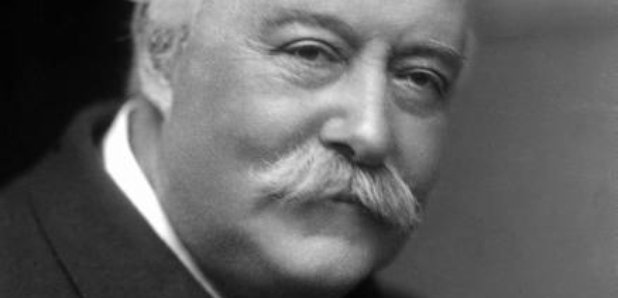Hubert Parry's Symphony no 5 at Prom 17 Friday, along with Vaughan Williams and Holst. PLease read my review HERE and Robert Hugill's HERE. There's so much more to this programme than the usual clichés about the First World War. Just as there's much more to Parry than Jerusalem and sound tracks to royal events. So what if Parry died in 1918 ? What matters is his influence on British music,which runs deeeper than some expect. For one thing, Parry was not insular, but had an outlook which embraced continental European music. Please come back for my review of Prom 17, but some background on Parry's 5th (courtesy of Jeremy Dibble's seminal biography).
Parry's Symphony no 5 connects to Schumann's Symphony no 4 which we heard earlier this week in the 1841 version Brahms preferred. Since Parry respected Brahms so much, when Brahms died, he wrote a private and very moving tribute. Schumann's original "fourth" symphony was written in his glorious Liederjahre when a stream of masterpieces burst forth unstemmed. It's not the work of an immature composer, but rather of one who has so much to say that he needs to get it down quickly. "The important fact", wrote Parry in 1883 about Schumann 4 was "the work can be felt to represent in its entirety the history of mental and emotional conditions such as may be grouped around one centre.... the conflict of impulses and desires, the different phases of thought and emotion, and the triumph or failure of the different forces which seem to be represented all give the impression of ....beingperfectly consistent in their relationship to one another." Thus Parry's preferred title Symphonic Fantasia.
The titles of each movement, Stress, Love, Play and Now might mean different things to different people but had symbolic significance to a composer who cared deeeply about ethical and intellectual issues. Thus the complex but highly organized patterns of theme, capitulation and development. Some themes have titles like "brooding thought", "pity" and "revolt", like leitmotivs, but are defined by subtle tonal variations. "The elongated capitulation", writes Jeremy Dibble, "is decidedly Lisztian" and "the complex cyclic procedures" (in Schoenberg's .... Kammersymphonie published 1912) "shows a fascinating affinity with the processes in Parry's Symphony". Though it was unlikely that Parry knew this, it is all the more reason that it's remarkable how Parry "shows a forward looking attitude to modern structural procedures" adds Dibble. "For this reason alone it merits a firmer place in the canon of cyclic works, and perhaps more important still it deserves to be more widely recognized as one of the fineset and most assured utterances in British symphonic literature".
Thus the real programme in Prom 17, not "greatest hits" so much as British music on the verge of a new era. RVW's "Pastoral" isn't pastoral, and The Lark Ascending is pretty amazing, even if we've heard it a million times. Please also read my analysis of the secret programme behind the First Night of the Proms where the BBC's obsession with non-musical themes was trumped by deeper musical undercurrents. Please also visit the Hubert Parry Group on Facebook

No comments:
Post a Comment